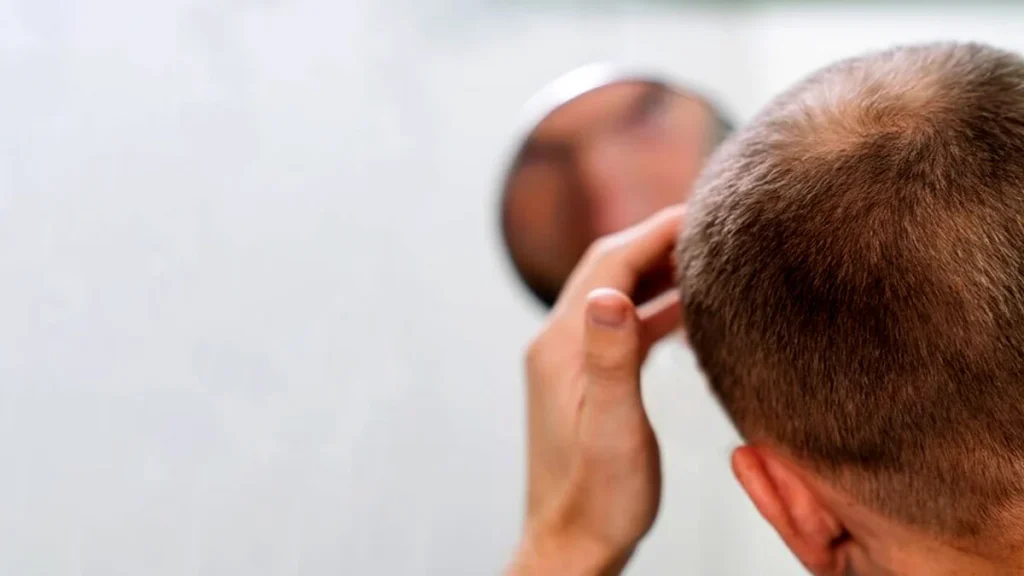
Introduction & Background
Hair loss is a common condition that affects millions of people worldwide, regardless of age or gender. While medical treatments are available, many individuals are turning to natural remedies to manage hair loss due to fewer side effects and a holistic approach. These remedies focus on improving scalp health, reducing inflammation, and stimulating hair growth using herbs, oils, and lifestyle changes.
Causes of Hair Loss
Natural remedies aim to address hair loss caused by:
- Hormonal imbalances (e.g., thyroid, androgens)
- Nutritional deficiencies (iron, zinc, protein)
- Stress and anxiety
- Scalp infections or inflammation
- Genetic predisposition
- Overuse of chemical hair products
- Poor blood circulation in the scalp
Indications of Hair Loss
- Thinning of hair on the scalp
- Receding hairline
- Patchy or circular bald spots
- Increased hair fall while brushing or washing
- Slower hair regrowth
Symptoms of Hair Loss
- Excessive hair shedding daily
- Visible scalp through hair
- Brittle and weak hair strands
- Itchy or inflamed scalp
- Hair loss in specific patterns (male/female pattern baldness)
Prevention Strategies for Hair Loss
- Maintain a balanced diet rich in vitamins and minerals
- Reduce heat styling and harsh treatments
- Manage stress through yoga and meditation
- Regular scalp massage with natural oils
- Use mild, herbal shampoos free from sulfates
- Stay hydrated and maintain healthy sleep patterns
Myths and Facts About Hair Loss
| Myth | Fact |
|---|---|
| Hair loss only affects men | Women are equally affected |
| Washing hair daily causes hair fall | Gentle daily washing is safe |
| Shaving head promotes thicker hair | No scientific backing |
| Natural remedies don’t work | Some are proven effective over time |
| Hair loss is always genetic | Lifestyle and health play a big role |
Treatments and Therapy
Medication-Based Treatments
Not typically part of natural remedies but may include supplements like biotin, zinc, or iron.
Surgical Treatments
Not applicable under natural remedy focus.
Physical Therapy and Rehabilitation
- Scalp massage therapy to increase blood flow
- Acupressure for scalp stimulation
Lifestyle and Behavioral Interventions
- Stress reduction techniques
- Adequate sleep and hydration
- Regular exercise
Alternative and Complementary Medicine
- Aloe Vera: Soothes scalp and conditions hair
- Onion Juice: Improves blood circulation and hair regrowth
- Green Tea Rinse: Rich in antioxidants, reduces hair fall
- Rosemary Oil: Stimulates hair follicles
- Fenugreek Seeds: Strengthens hair shafts
- Coconut Oil: Deep moisturization and antimicrobial benefits
- Saw Palmetto: Natural DHT blocker (linked to hair loss)
- Apple Cider Vinegar: Maintains pH balance of scalp
- Pumpkin Seed Oil: Shown to support hair regrowth
Psychotherapy and Counseling
- Useful for hair loss triggered by stress or trauma (e.g., trichotillomania)
Immunizations and Vaccines
Not relevant for natural hair loss treatment.
Stem Cell Therapy
Medical advancement, not a natural approach.
Gene Therapy
Experimental, not within natural remedies.
Top 20 FAQ on Natural Remedies for Hair Loss
- Do natural remedies really stop hair loss?
Yes, for many people, consistent use of natural ingredients helps reduce hair loss and promotes regrowth. - How long does it take to see results?
Typically 2–3 months with consistent application. - Can onion juice regrow hair?
Yes, studies show it may help improve blood flow and stimulate follicles. - Is aloe vera good for all scalp types?
Yes, it suits most and helps with inflammation. - What are the best oils for hair regrowth?
Coconut, castor, rosemary, and peppermint oils. - Is green tea rinse safe?
Yes, it’s antioxidant-rich and can be used weekly. - Can stress cause hair fall?
Absolutely. Managing stress is crucial for healthy hair. - Are natural remedies better than minoxidil?
They are gentler, though results may take longer and vary individually. - Can diet affect hair health?
Yes, iron, protein, and vitamin-rich diets are essential. - Is castor oil effective?
Yes, it’s known to thicken and strengthen hair. - Can I use natural remedies with medications?
Generally, yes—but consult a dermatologist first. - Does apple cider vinegar promote hair growth?
It balances scalp pH and reduces dandruff, aiding in hair health. - How often should I apply onion juice?
2–3 times a week is ideal. - Can I use essential oils directly?
No, always dilute them with carrier oils like coconut or olive oil. - What vitamins are best for hair loss?
Biotin, Vitamin D, Iron, and Zinc. - Is hair loss reversible with natural remedies?
Depends on the cause. Early intervention has better results. - Do natural shampoos help?
Yes, herbal, sulfate-free shampoos are gentler and better for scalp health. - What is fenugreek used for in hair care?
Strengthening hair, reducing shedding, and conditioning. - Is scalp massage necessary?
Highly recommended to stimulate hair follicles. - Can women use these remedies too?
Yes, natural remedies are safe and effective for both men and women.
Conclusion
Natural remedies for hair loss provide a safe, accessible, and often effective option for individuals looking to combat thinning hair or scalp issues without harsh chemicals or expensive treatments. With consistent use and a holistic lifestyle, it’s possible to manage and even reverse hair loss in many cases. Always consult a dermatologist if hair loss persists or worsens despite natural interventions.